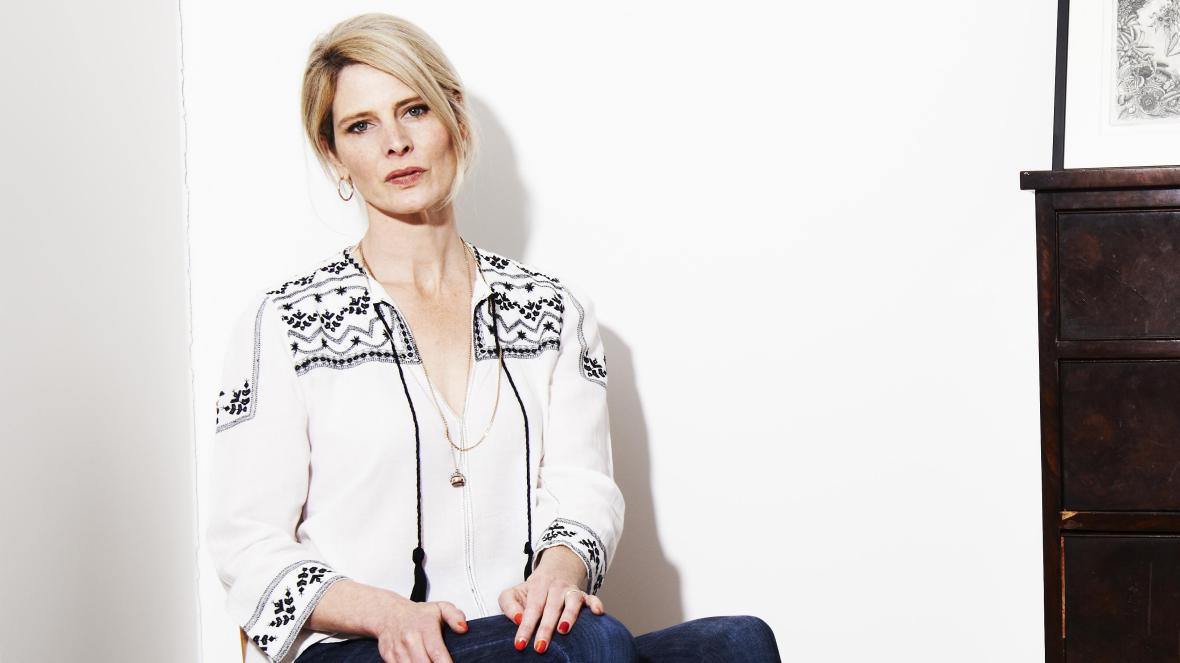Why do I binge-eat and how can I face my guilt?

As seen in ![]()
A few months ago I was tidying up after my youngest son’s birthday party. In between stacking the dishwasher I ate some leftover pizza and cake. For a parent this is pretty standard; often my meals are made up of stuff my children have left behind. Something that afternoon switched, however. I was tired and had a never-ending to-do list and no one around to help.
Before I knew it I was reaching into the freshly stocked snack cupboard. No matter that I don’t particularly like custard creams, Penguin bars and Doritos. When I binge, I barely taste anything. It’s simply about getting through whatever’s in front of me in the quickest time possible. I obliterate the food, and, for a short while, the uncomfortable feelings. That was the last time I binged. It was over in less than ten minutes, leaving me with a horrible aftertaste and nothing to look forward to but bedtime.
When lockdown first descended my greatest fear beyond my friends and family becoming ill was this: that the disordered eating that has dogged me for much of my life will return with force. Being stuck at home with ample food and rising family tensions could easily send me back to solo midnight feasts in the kitchen. Amazingly, so far it hasn’t. Yet every day I worry that it will.
I was bulimic as a teenager and have sporadically binge eaten in adulthood. “I’m completely fine now,” is what I often tell myself because at 42, consigning my problems to the past is a way of avoiding certain fears.
That my boyfriend will see a crazy, unloveable woman; that friends will think I’m making a big deal out of nothing because I’m slim and eat normally in front of them; that my children will think I’m an unfit mother. Sometimes I can convince myself that my problem is not a problem at all, setting death as the benchmark for something being really bad.
In the not too distant past, when my children have gone to bed, I’ve dismantled the skyline of boxes in my cupboards. I’ve jammed crackers, crisps and cake into my mouth, barely chewing before swallowing.
I’m certain that every person with an eating disorder hates having it. From sporadic binges to anorexia that requires treatment in hospital, the ways in which people’s problems with food manifest themselves are myriad and, from what I’ve experienced and heard, always misery-making. Although I haven’t binged for a while, the thought of the urges returning terrifies me because they take me as close to wanting to die as I’ve ever been.
Recently I read Marian Keyes’s latest book, Grown Ups. Cara, one of the protagonists, is a clever, kind wife and mother who binges, then throws up. She’s not mad, bad or ugly, but she often feels it and ends up so unwell she has a seizure.
This may be fiction, but the situation is more real than anything I’ve read about obsessions around food. And although my problem isn’t as severe as Cara’s, being faced with a character of a similar age with similar feelings about herself is a sharp reminder that if I want to leave bingeing firmly in the past, I have to face my shame.
It’s a monster. I’ve compulsively shopped for things I don’t want, had long relationships with men I don’t even fancy. Yet eating has been king in things I’ve obsessed about because food is everywhere, always within reach to push the shame down when it rises up. From chats with friends, I’ve learnt that shame is not just feeling that what you say or do is wrong, it’s feeling that who you are is wrong, and it has the power to eat into every area of life.
When I was seven I moved from a small village school to a stiff, academic prep school. I didn’t understand the unwritten codes of how to be popular. Girls sneered at my handwriting, baggy uniform and general inability to get it right. Maths. Gymnastics. The correct way to sneeze.
I feigned illness so I could stay at home. Yet that was also a strange place. After a two-year separation my parents had got back together, and in quick succession I had a brother and a sister.
Kate, a clever, beautiful girl whom I love to this day, asked if I’d be her friend. Together we’d eat family packets of M&S crisps, doughnuts and Swiss chocolate. I was forming a bond with food where I didn’t have to think. Comfort was her happy household and bursting larder.
Activities became heavily linked to food. The vending machine drop after swimming gave me far more of a thrill than learning how to do the butterfly stroke. Even time with my dad was all about the buy-one-get-one-frees. We’d pile Mars bars and Snickers into the Sainsbury’s trolley. It was a bonding experience for someone who so wanted to be close to her dad, but was not.
At secondary school my heroes were Kate Moss and Marlboro Lights, but I was the Big Girl. Too curvy for a triangle bikini. Not the right shape for Topshop. I was constantly striking deals with myself: if I could survive on strawberry Slimfast shakes I’d be thin and happy.
Spare money was spent on chocolate and spare time on eating it in my bedroom. I skipped meals for fear of growing huge, but unsurprisingly my hunger triggered a binge. Vomiting felt like the solution.
Nobody seemed to notice what I was doing. I didn’t dramatically gain or lose weight. My teeth suffered and my watery, swollen eyes often precipitated the question of why I’d been crying. Yet unlike my friend Amber — who came back after a summer break with hip bones jutting over her Levi’s — I had an eating disorder that was almost invisible to others.
My vomiting stopped when my mum found me one night with my head in the loo after I’d forgotten to lock my bathroom door. Since then I’ve barely thrown up. I visited a counsellor and that helped. I took Fluoxetine for depression at university and lost weight, relieved that something outside myself regulated moods and hunger. Shortly after graduating I had a daughter. It was an unplanned pregnancy and my weight dropped even further from the exhaustion of being a young, single mother. In my mind, my eating disorder was over.
Yet in the years since, as with any untreated illness, obvious triggers such as tiredness, stress and money worries have tipped me back into unhealthy obsessions with food. In this I am not unusual, according to Gillian Lock, a psychotherapist.
“Eating is a way of self-comforting that doesn’t require engaging with another person,” she says. “Not having the self-confidence or self-esteem to know that you can reach out to someone is part of the reason many people don’t get help.”
Most of the people with eating-related issues who Lock sees are teenagers. So would earlier intervention have helped me? “The triggers are incredibly varied, so we need to work in a much broader way to help people in the early stages. Usually, by the time someone has developed an eating disorder it’s much more difficult,” Lock says.
It’s hard to imagine my seven-year-old self being aware or confident enough to say: “I feel lonely.” Yet I can imagine that as a 14-year-old I might have responded well to talking to someone about my feelings of shame.
A friend who binged regularly into adulthood, but is now aware of her triggers, has found it helpful to write things down or pick up the phone to share how she’s feeling. I relate: calling my closest friends has helped me to avoid a binge, but it’s not easy.
My 19-year-old daughter, Violet, loves her body, but still occasionally eats on her feelings. And she has accepted that and can talk about it. Just before lockdown we went to her favourite Caribbean restaurant, where she introduced me to the wonders of the fried dumpling chicken burger. Eating with Violet is always pure pleasure and no guilt. Surrendering to simply what feels good — whether that’s a daytime lie-down or salt and vinegar crisps at midnight — is, I realise, the way forward. My past attempts at deprivation and intentions to be “good” have not served me well.
“The question I get asked most is, ‘What is normal eating?’ ” says Maureen Moerbeck, a dietician from Mindful Nutrition Practice in London. She admonishes the labelling of “good” and “bad” food and says that this can trigger people with confused ideas about food and eating to deprive their bodies of what they need. And she’s similarly upset that the term “mindful eating” has been adopted as yet another diet.
“The advice from some is, ‘Only eat when you’re hungry and stop when you’re full,’ but what if, like many people, you’re not able to tell? Think about the guilt that creates for some people,” she says.
In the past I’ve failed to see hunger as nuanced; my rigid ideas about food have shaped thoughts about myself. Bad was wanting pudding most nights. Good was choosing a small lunch, even though I was hungry.
My first attempt at getting these words down ended with a blank page and a crumby keyboard. Fear that I’d write something terrible was the trigger for eating half a packet of chocolate digestives. The guilt didn’t sting like it used to, though. Instead of polishing off the pack, I called the children away from their screens and into the kitchen to discuss dinner.
And there is one advantage to the present moment: when uncomfortable feelings arise (namely guilt, shame and loneliness) for now at least I have time to sit, think, be still and do nothing.
Why you can’t stop picking your spots (even if you want to), according to a psychologist
If you secretly enjoy popping whiteheads or spending your evenings in...
How healthy is your relationship? The simple ways to find out
The key signs of a healthy relationship… Attraction and intimacy While it...
12 things you should never say to your partner
Did you know that telling someone to ‘calm down’ during an argument might...
Would you like to join our mailing list?
From time to time we may notify you of new blogs on the website, or share thoughtful, relevant articles and content, aimed at informing and helping people.
© 2020 Likeminds Psychotherapy and Coaching - London | Glossary | Privacy Policy | Site by Diagonal



